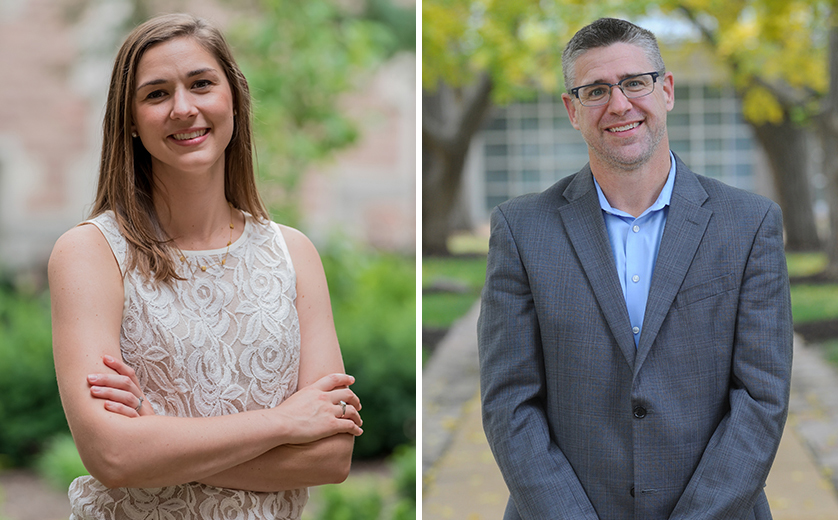Preventing diabetes and managing asthma are the goals of two Brown School-led teams selected as winners in the 2020 Big Ideas Competition, sponsored by the Healthcare Innovation Lab (The Lab) and Washington University Institute for Informatics (I2). The transdisciplinary teams were among seven selected from 38 applications and judged by BJC HealthCare and Washington University School of Medicine leaders.
Now in its second year, the Big Ideas Competition was created to identify and support high-priority, novel projects from collaborative clinical, operational and research teams developing innovations in informatics and health care delivery. The competition was judged again this year by BJC HealthCare and Washington University School of Medicine leadership. Drs. Thomas Maddox, Executive Director of the Lab and Philip Payne, Director of I2, will award each winning team with a grant of $50,000 in research funds.
Leaders of the winning teams from the Brown School represent two major research centers at the school: The Health Communication Research Laboratory (HCRL) and the Prevention Research Center (PRC).
Predictive Methods and Alerts to Prevent Asthma
Led by Joseph Steensma, professor of practice at the HCRL, and Dr. Maya Jerath, of the School of Medicine, this team also includes Pratim Biswas, of the McKelvey School of Engineering, and Tarisa Mantia, of the School of Medicine. It will study 10 patients with mild to moderate intermittent or persistent asthma for a 6-month pilot study. The patients will wear monitors that measure particulate matter in the air, and log in periods when they experience shortness of breath or wheezing through a time-stamped system. Data from the monitors will be compared with asthma symptoms to determine the correlation between exposure to particulate matter and the symptoms.
“This technology has the potential to fundamentally change the way we manage one of the most costly and debilitating diseases in America,” Steensma said. “Our guiding principle at the HCRL has always been to eliminate health disparities, and asthma is an example of a disease the disproportionately impacts the poor. This project is a prime example of how we can leverage the innovative capacity of the Brown School, the McElvey School of Engineering and the School of Medicine to improve the well-being of the most vulnerable among us.”
Using Interventional Informatics to Address Social Determinants of Health During Clinical Care Visits to Promote Behavior Change and Prevent Type 2 Diabetes
Led by Maura Kepper, research assistant professor at the Prevention Research Center (PRC); and Randi Foraker, associate professor at the School of Medicine, the team also includes Drs. Cynthia Herrick and Neil White, of BJC; and Ross Brownson, Director of the PRC. They will study the use of PREVENT, a computer app that will be integrated into electronic medical records and used by providers during clinic visits to prevent Type 2 diabetes among at-risk adolescents. Providers and patients will view the patients’ risk for developing Type 2 diabetes, evidence-based physical activity and nutrition prescriptions that are tailored to the patients’ risk, and an interactive map of community resources to help them achieve their physical activity and nutrition goals. PREVENT will then send patients an email with the prescriptions, community resources, and educational information to promote behavior change, along with automatic follow-up.
“Our PREVENT tool will harness clinical and community data to deliver behavior change recommendations tailored to the individual and their community to address pediatric obesity and generate equitable change,” Kepper said. “This tool has the ability to reshape the way we care for patients and promote population health in our region and beyond. This study leverages a transdisciplinary team that combines the areas of geospatial and behavioral health, informatics, and implementation science with clinical expertise across Washington University in St. Louis and BJC.”
